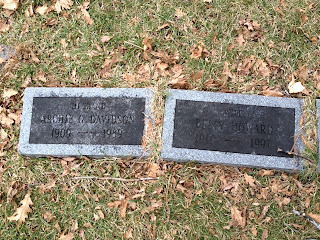pastoral care
Poem: Visiting Rowan on Easter Sunday
Emma has been gone for a long time now.
Beside him, an electric photo frame shuffles images of his children and grandchildren and great-grandchildren,
All of whom keep him anchored here.
But he cannot eat, he says, as he holds a white plastic bag
With a blue plastic ring to hold it open for vomit.
We brought him a red egg, hard-boiled, in the Orthodox tradition.
He is glad to receive it with a sad smile,
But we both know he will not eat it.
Mother asks him if he would like communion, and he thinks;
Thinking is hard right now, and his eyes won’t focus
Though he tells us he can see through the doorway beyond
And make out the picture frame in the next room.
We turn to look but we don’t see it,
Unless he means the mirror, or the window, in the room across the hall
Or perhaps he sees something beyond our vision that we cannot yet see.
Richard is coming soon for lunch with his father,
Of course Rowan won’t eat, he tells us,
But he will be glad to see his son.
The phone rings. One of his daughters, calling to check in.
They all check in with me every day, he says,
With a laugh that makes him cough a little.
“They’re so good to me.”
He tells her he has guests, and that everything is fine.
The egg starts to roll off his lap, and he quickly catches it
With his knees, and it does not break.
Which reminds me that he learned to ski in his fifties
And only gave it up in his eighties when his balance started to go.
He hangs up the phone and Mother offers him communion once again.
He cannot focus his eyes, so we read the liturgy for him,
And then he takes the bread with fingers that have grown dark and thin and knurled like wild oak branches.
I am surprised by his speed and agility as he takes the bread.
And he chews it, and drinks the wine,
While his right hand clutches the white bag with the blue ring.
But he does not need to lift it to his lips.
The bread and the wine stay with him, and he laughs,
And stretches out a thin hand to each of us
And thanks us for coming to visit.
Would you like us to shut the door, Mother asks.
He is quick to reply:
No, please leave it open.
And he wishes us a happy Easter,
And we walk out through the lobby, where twenty gray heads in wheelchairs stare at the television screen, and wait.
On Religion And Robots
The Pastoral And The Personal In Theodicy
A theodicy is an attempt to reconcile the apparent evil in the world with the alleged goodness of God, often by showing that the very goodness of God makes some evil necessary; or by arguing that the goodness of God is amplified by a certain amount of evil. In other words, the evil we experience and witness is, in the end, made to serve goodness.
 |
| Roman tombs in southern Crete. |
There's also the very real danger that theodicies will isolate us from one another. Sometimes some perversity in us makes us inclined to tell someone who is experiencing fresh grief that "it's all for the good," or "it will all work out well in the end," or "your loved one is now in a better place." I would guess we do this because we do not know what else to say, and because we want the discomfort of grief banished from our presence. In which case we speak those words like an incantation, using magic to make the unpleasantness disappear. But the grief is not detachable from the griever, so to will the banishment of the mourning is to will the death of the mourner. In simpler terms, when we invoke thoughtless theodicies, sometimes we are committing human sacrifice - throwing out the mourner - in order to comfort ourselves.
In spite of this, I think there is still a place for theodicies - just as there is a place for ontological arguments - provided they originate with the believer and are not forced upon her. The mourner who chooses to believe that the dearly departed have gone to well-earned rest may believe that. That belief may be the germination of the seeds of honor and love, or the expression of grief combined with commitment to the flourishing of the memory of the beloved - it may be the fruit of the idea that the cosmos has no right to bring this love to an end. You may destroy the body, but the soul you shall not take from me.
 | ||
| My great aunt and great uncle. Here lie their bodies. |